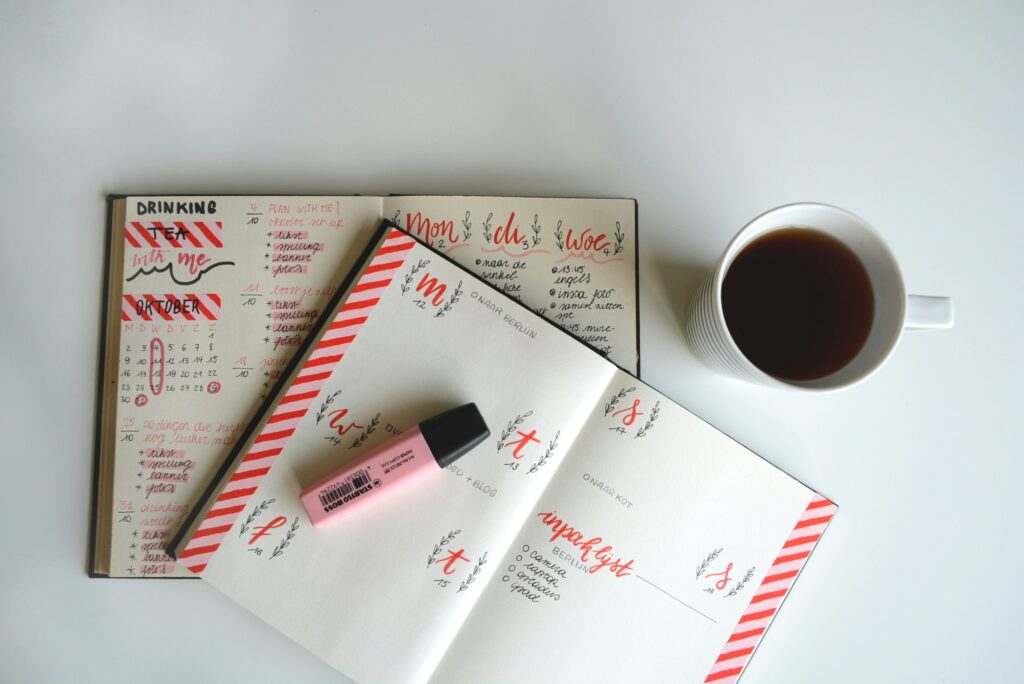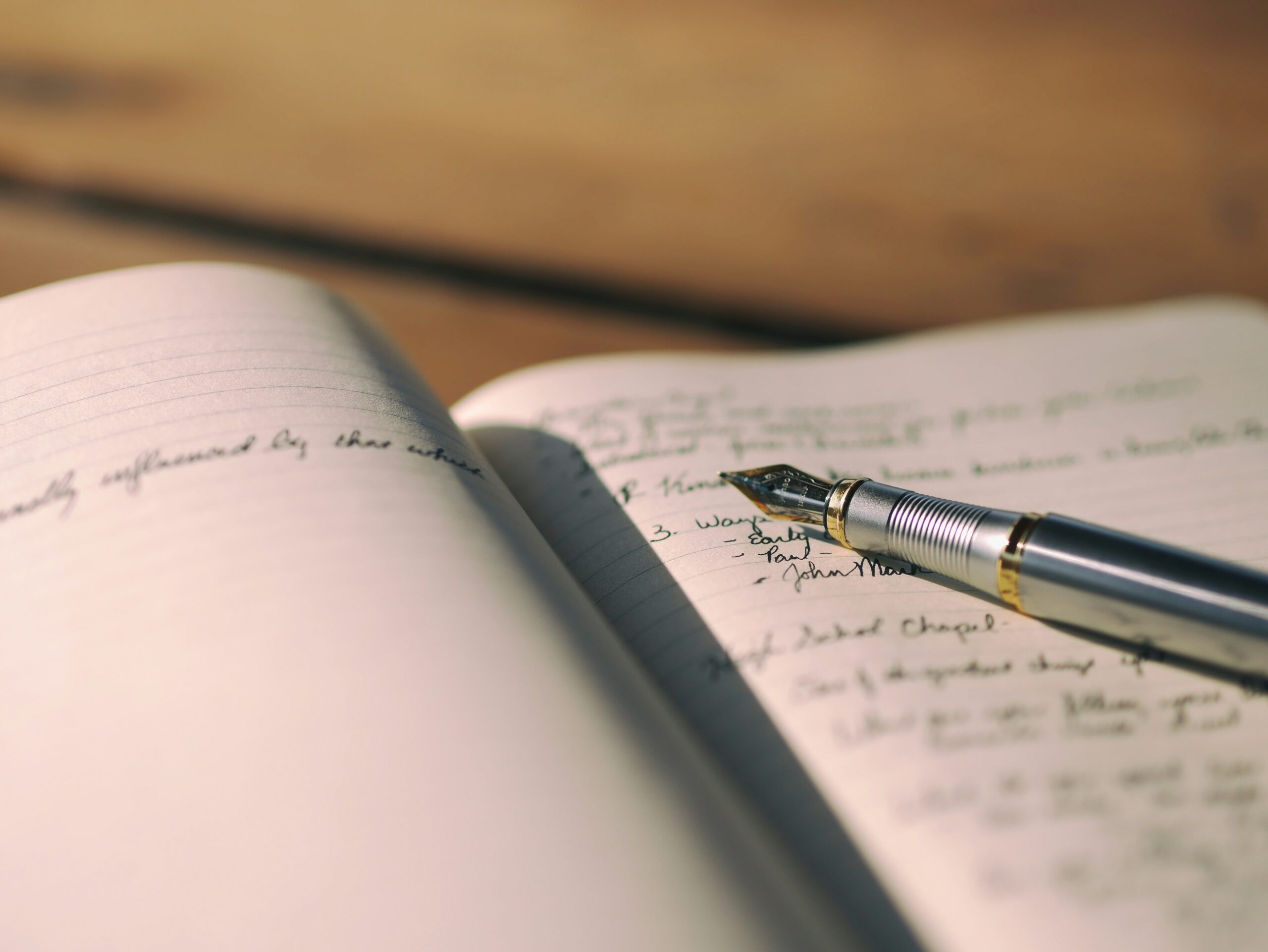Life can be hectic. Between work, relationships, and personal responsibilities, it’s easy to feel overwhelmed and mentally drained. It’s in these moments of stress that many of us are in need of a way to untangle our thoughts and find some clarity. That’s where journaling comes in:
- How journaling helps process emotions
- Different types of journaling
- Building a journaling habit
- A simple yet powerful tool: Journaling
Journaling isn’t just about keeping a diary or writing down your day’s events. It’s a powerful mental health tool that allows you to express your feelings, process emotions, and gain a clearer perspective on your thoughts. Expressive writing can help to reduce stress, increase self-awareness, and even improve problem-solving. In this article, we’ll explore the benefits of journaling for mental health, the different types of journaling, and how to build a journaling habit that works for you.
“Journal writing, when it becomes a ritual for transformation, is not only life-changing but life-expanding.” – Jen Williamson
How journaling helps process emotions
One of the primary reasons journaling is so beneficial for mental health is because it provides a safe space to process emotions. When we don’t express our feelings, they can build up and become overwhelming. Writing helps us externalise what’s going on in our minds, allowing us to see our thoughts and emotions from a distance.

Self-reflection
Journaling gives you the opportunity to reflect on your experiences, thoughts, and behaviours. By writing about how you’re feeling and what’s happening in your life, you’re able to gain deeper insights into your emotional state. For example, if you’re feeling anxious, writing about the cause of your anxiety can help you pinpoint the underlying triggers. This self-reflection can lead to greater self-awareness, which is an important step in managing mental health challenges.
Emotional release
Sometimes, we hold onto emotions without realising it, and this emotional baggage can take a toll on our well-being. Writing about our feelings—whether it’s frustration, sadness, or even joy—provides a cathartic release. It’s a way to process emotions in a healthy manner and let go of pent-up stress. This release can leave you feeling lighter, more centred, and at ease.
Problem-solving
Journaling also encourages problem-solving. When you’re facing a difficult situation, writing about it can help you break down the problem into manageable parts. By thinking through the issue on paper, you may come up with solutions you hadn’t considered before. Journaling allows you to view the problem from different angles, helping you feel more in control and capable of managing challenges.
Different types of journaling
There are many different ways to journal, and each approach offers unique benefits. Finding the right type of journaling for you can make it easier to develop a consistent practice. Here are some popular types of journaling:
Gratitude journaling involves writing down things you’re thankful for each day. It can be as simple as noting three things that brought you joy or made you feel appreciative. Practising gratitude on a regular basis has been shown to improve mood, increase positivity, and even reduce symptoms of depression. It helps you shift your focus away from what’s going wrong to what’s going right, encouraging a more optimistic outlook on life.
If you prefer structure, bullet journaling may be for you. Bullet journals combine elements of a planner with journaling. They can include to-do lists, habit trackers, and reflections. This method is great for organising thoughts and keeping track of tasks while also incorporating a personal touch. Bullet journaling can help you feel more in control and productive, while also providing an outlet for your thoughts and feelings.

If you’re looking for a more freeform style of journaling, stream-of-consciousness writing is perfect. This technique involves writing down whatever comes to mind without worrying about grammar, structure, or punctuation. It’s all about letting your thoughts flow onto the page. This style of writing can help you clear your mind and work through any cluttered or overwhelming thoughts, allowing for deeper mental clarity.
Building a journaling habit
The benefits of journaling can only be realised when it becomes a consistent practice. Like any new habit, starting small and gradually making it a routine is key to success. Here are some tips to help you develop a journaling habit:
- Start with a few minutes a day: If you’re new to journaling, it can feel intimidating to write for long periods of time. Start by committing to just five minutes a day. Set a timer, and write freely about whatever is on your mind. Over time, you’ll find that the practice becomes easier, and you might start journaling for longer without even realising it.
- Keep your journal handy: Having your journal easily accessible makes it more likely that you’ll write regularly. Whether it’s a physical notebook or a digital document, keep it somewhere you’ll remember to reach for it. You could even set a reminder on your phone to encourage you to write each day.
- Be consistent: Consistency is key when it comes to journaling. Set a specific time each day to write—whether it’s in the morning to start your day or in the evening to reflect on your thoughts. The more consistent you are, the more natural journaling will become. Don’t worry if you miss a day here and there; just get back to it the next day.
- Let go of perfectionism: One of the biggest barriers to journaling is the fear of writing “perfectly.” But journaling isn’t about producing beautiful prose or editing your thoughts—it’s about self-expression and mental clarity. Don’t worry about spelling, grammar, or structure. Just let the words flow. Your journal is a private space, and it’s meant to help you, not judge you.
A simple yet powerful tool: Journaling
Journaling is a simple yet powerful tool for improving mental health. It helps you process emotions, reflect on your thoughts, and work through challenges in a productive way. Whether you choose to practice gratitude, bullet journaling, or stream-of-consciousness writing, journaling offers a safe space for self-expression and self-discovery.
Let’s look back at what we’ve learned:
- Journaling helps us express, process and sort our emotions and thoughts
- It helps us reflect ourselves, makes for an emotional release and develops our problem solving skills
- There are a few different types of journaling, both with their own set of pros and cons
- Gratitude journaling can help improve mood and outlook on life
- Bullet journaling is a mixed approach of a planner and a journal
- Freeform journaling leaves you a lot of space for personal growth and development
- It helps if you develop a journaling habit, starting with a few minutes everyday
By building a journaling habit, you can gain mental clarity, reduce stress, and increase self-awareness. So, if you haven’t already, why not start today? Grab a notebook or open a document and begin your journey to a clearer, more peaceful mind. Your mental well-being will thank you for it!
By the way, here are 6 journaling techniques that can change your life:








